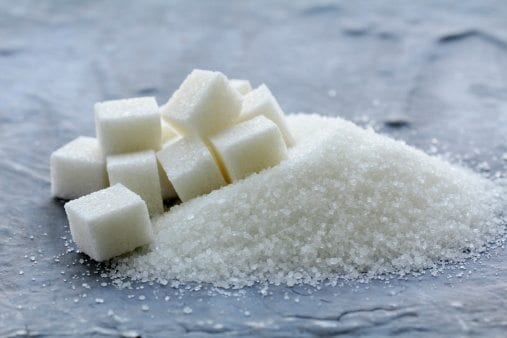
Folks with type 2 diabetes (that’s one in 10 adults in this country, according to recent reports) know the importance of making healthy choices at mealtime. But it’s just as important to stay away from the wrong foods—those that can cause your blood sugar to spike. Here’s why: Simple carbohydrates like white rice and sodas are broken down by the body into sugar, which enters the bloodstream, wreaking havoc with your blood sugar levels. Here are seven foods to avoid if you want to control blood sugar swings.
- Pretend white rice doesn’t exist. We understand this may be a most difficult endeavor for folks from the South, where “with a side of rice” is the unspoken rule. But researchers from the Harvard School of Public Health found people who ate five or more servings of white rice a week increased their risk for developing type 2 diabetes; those who replaced at least a third of their white-rice servings with brown rice lowered their risk by as much as 16 percent.
- When you think about saturated fat, whole-milk dairy products may not spring immediately to mind, but they are also loaded with saturated fats. Several studies have found a diet high in saturated fats has also been linked to insulin resistance. Swap whole-milk dairy products to the no-fat or 1-percent variety; you’ll still get all the benefits of calcium without the saturated fats.
- While we’re eliminating white things, go ahead and scratch white bread from your grocery list. Your body quickly digests products made with refined flour such as white bread, and this quick digestion can cause your blood sugar to rise. Research also shows that people who eat more whole grains and fewer refined grains have less of the type of body fat that can trigger type 2 diabetes.
- We won’t tell you to cut red meat from your diet entirely, but studies show a diet high in red meat and processed meats such as hot dogs and cold cuts could contribute to the development of type 2 diabetes. One study found that people who ate processed meat (think: two slices of bacon) every day more than doubled their risk for diabetes. Lower your risk by substituting one serving of red or processed meats with healthier sources of protein such as low-fat dairy or nuts.
- We’ve reported on this before, but it bears repeating: To keep your blood sugar within normal range, avoid soda and other sugary beverages. Studies have found that people who drank one or two sugary drinks a day were at a 26-percent higher risk for developing type 2 diabetes than those who drank less than one 12-ounce glass a month. Replace regular soda or sugary drinks with water or seltzer.
- Put commercially prepared baked goods on your no-fly list if you have type 2 diabetes or want to avoid developing it. These foods tend to be high in trans fats, and even small amounts of trans fats raise the bad cholesterol and lower the good cholesterol in your blood and can cause inflammation, which can lead to diabetes.
- What’s better than fast food when you’re hungry and in a hurry? Trouble is, most fast food is high in calories, fat and salt, all of which can send your blood sugar soaring. A Canadian study found eating just one fatty fast-food meal spiked blood sugar levels by 32 percent in healthy people who didn’t have diabetes. And sodium-heavy fast food can increase your blood pressure. This is particularly dangerous for people with diabetes, who are two to four times more likely to have heart disease than those without diabetes.






